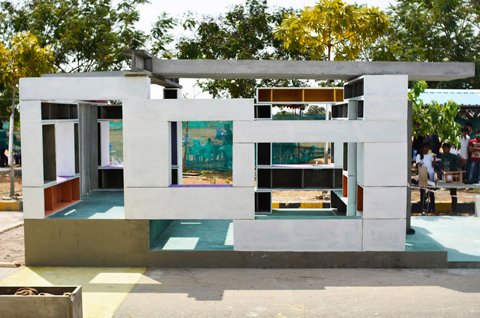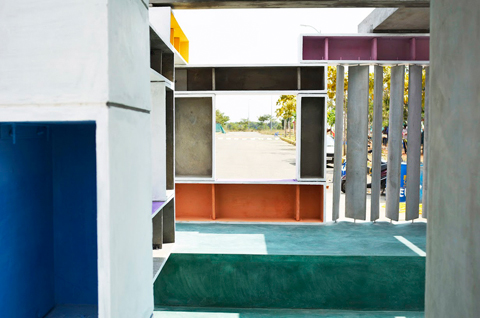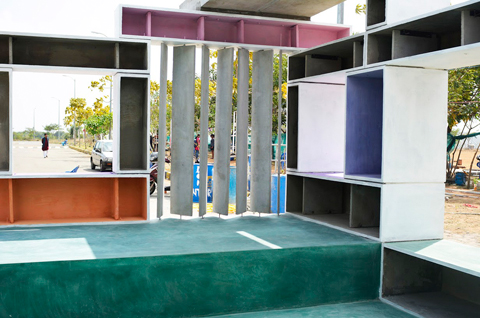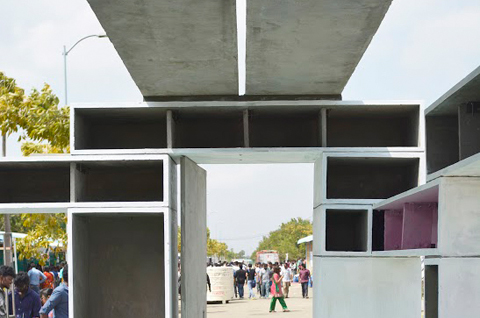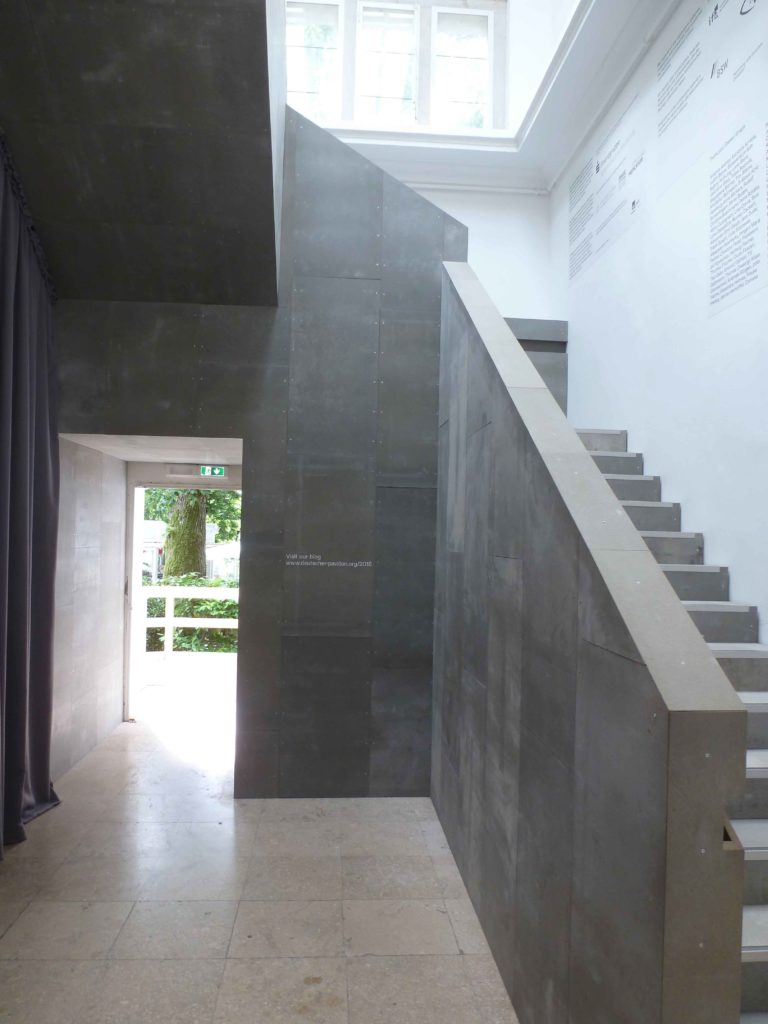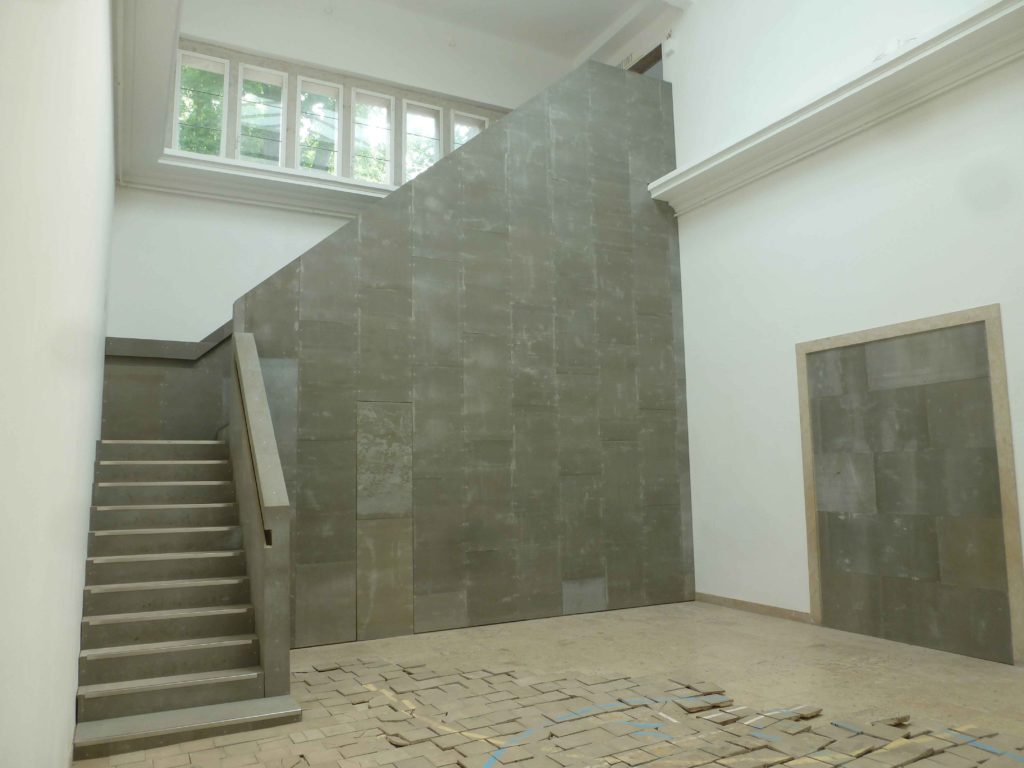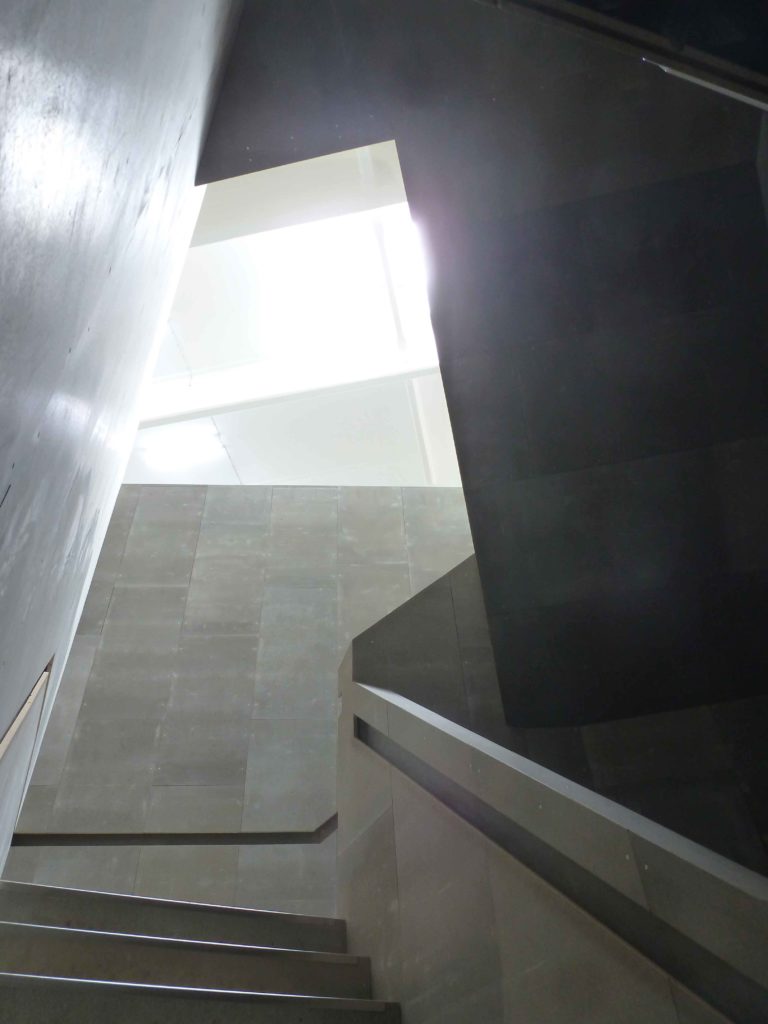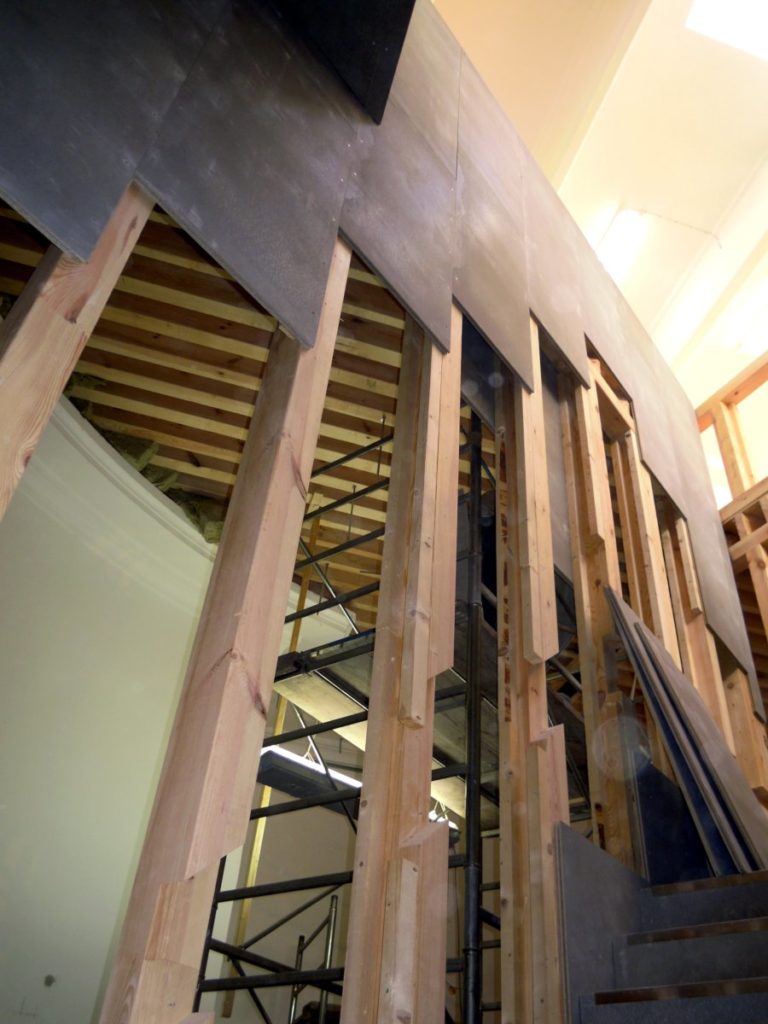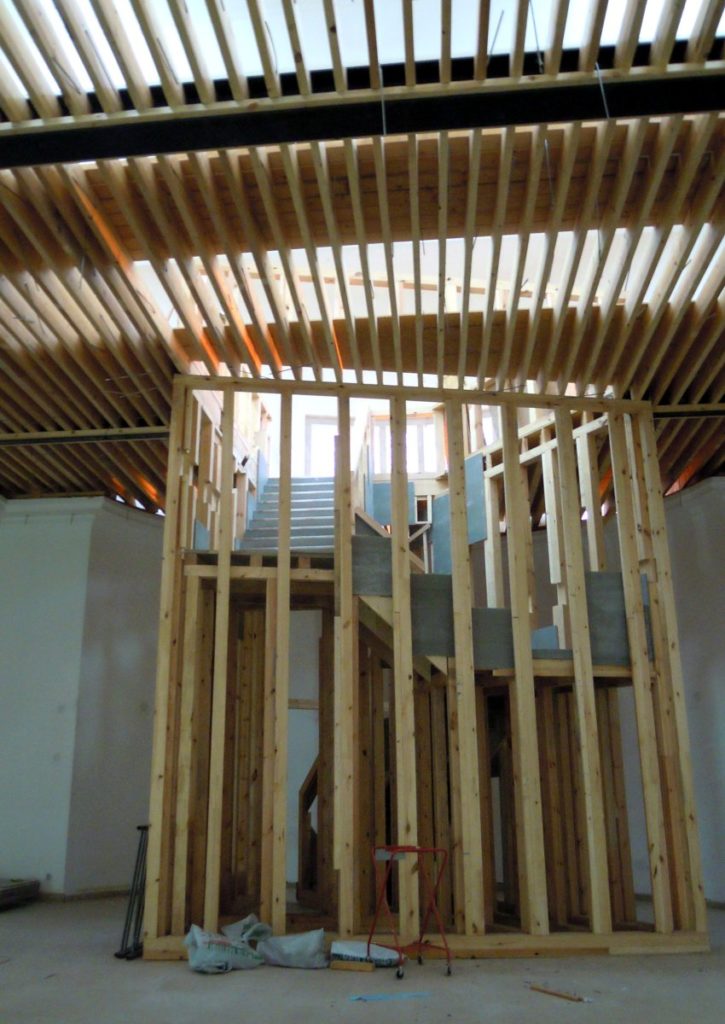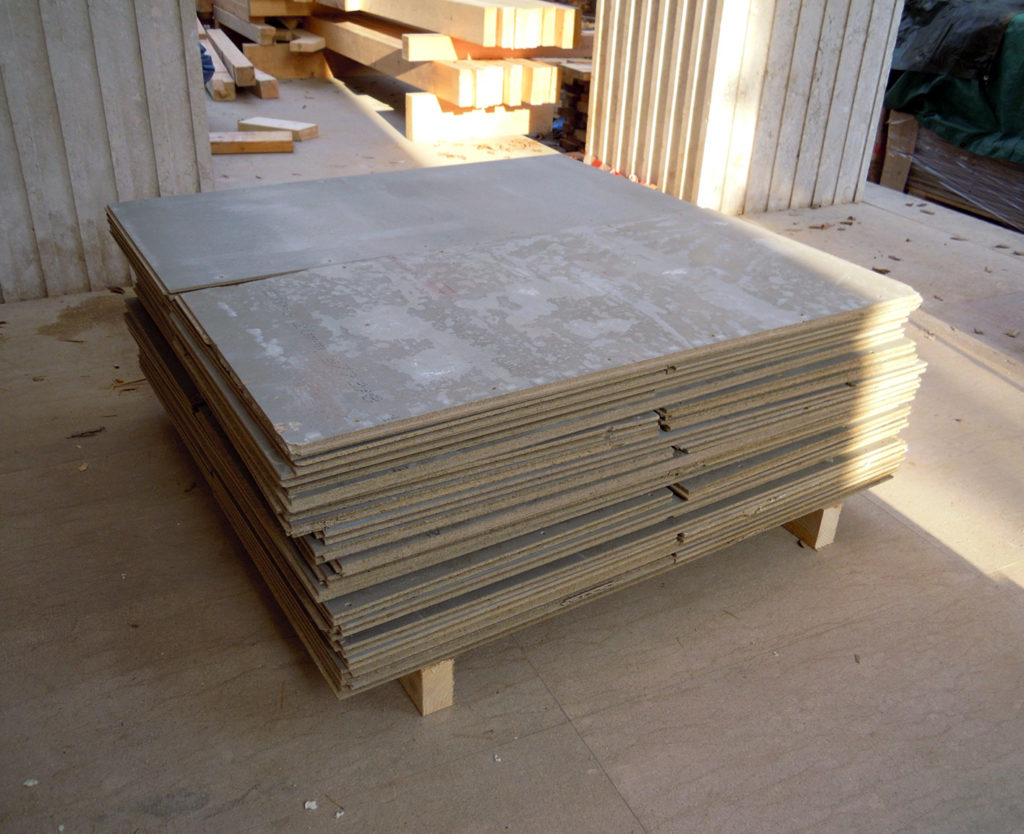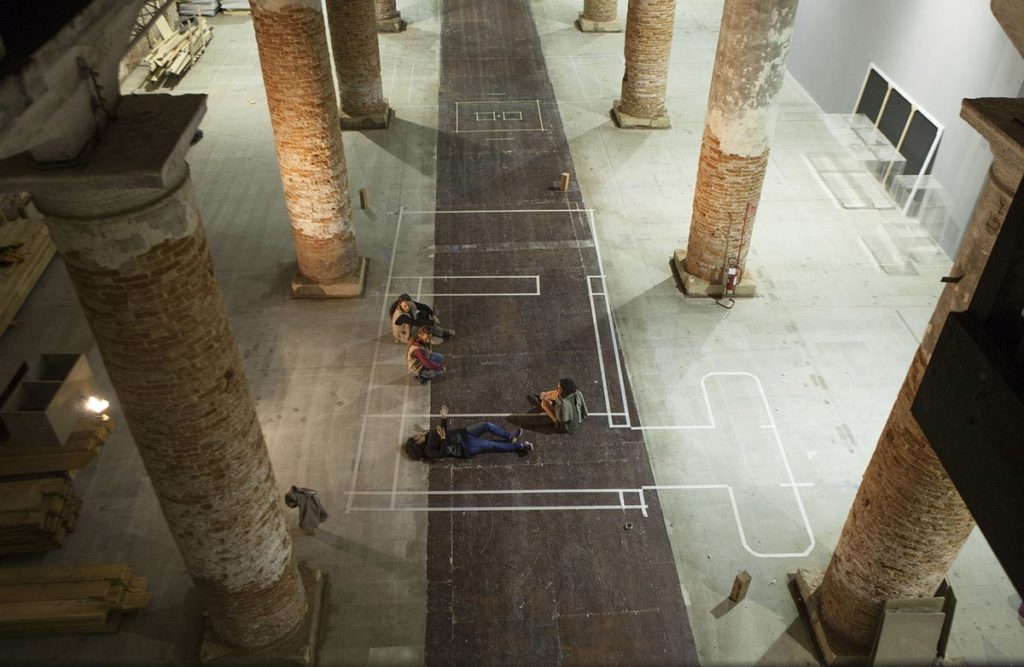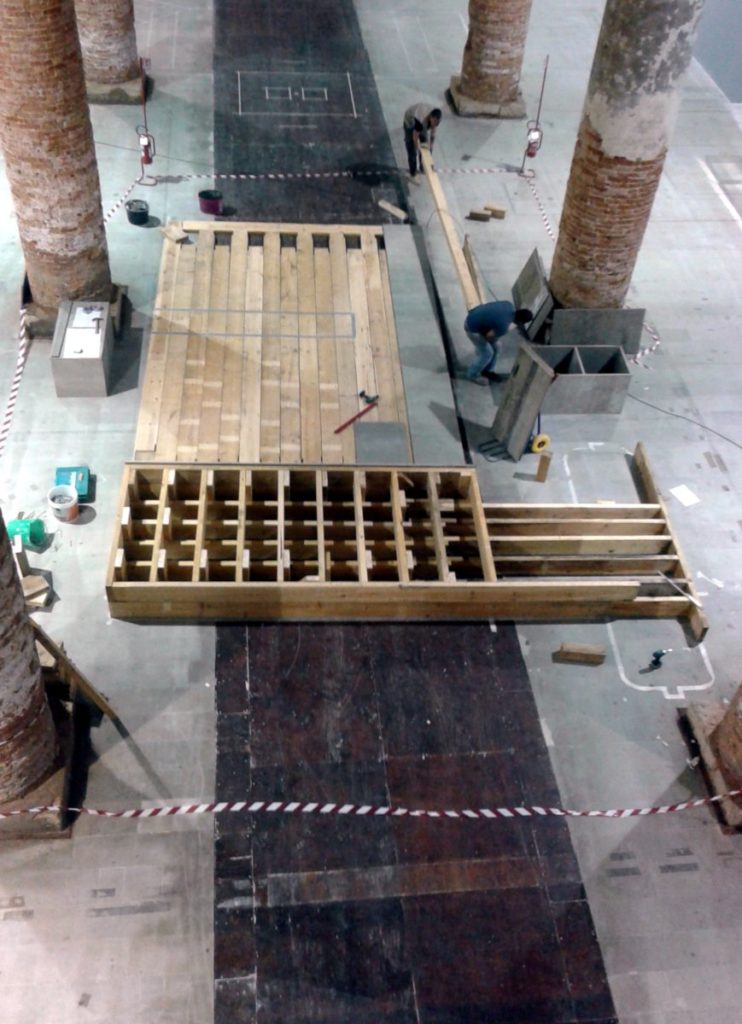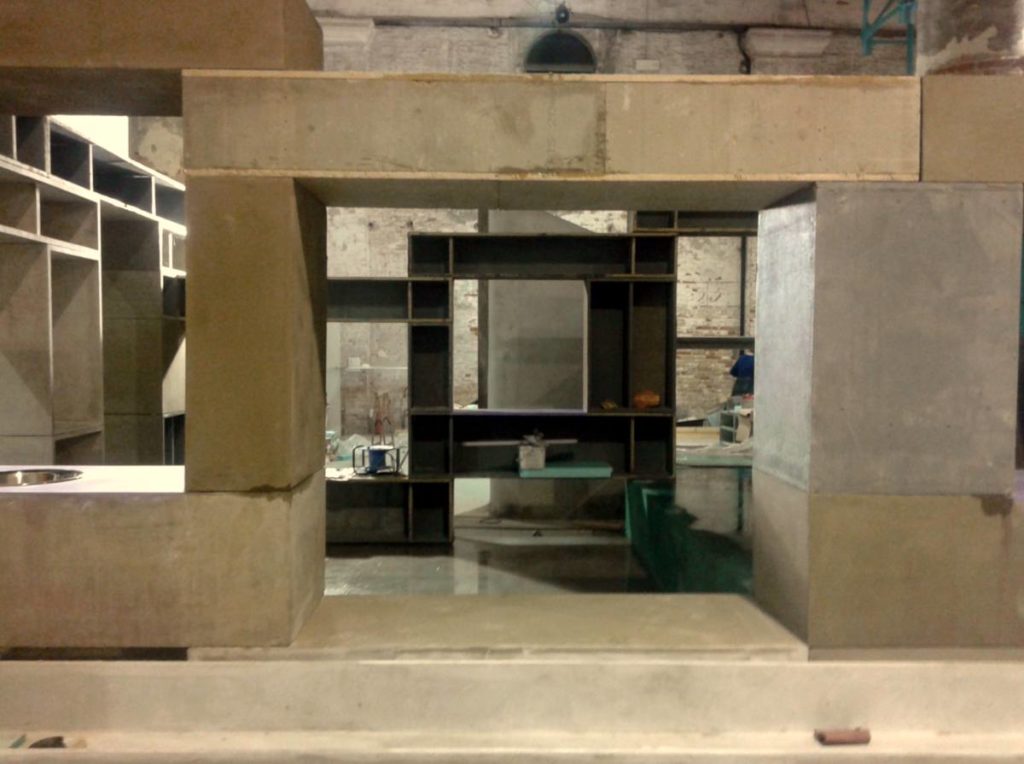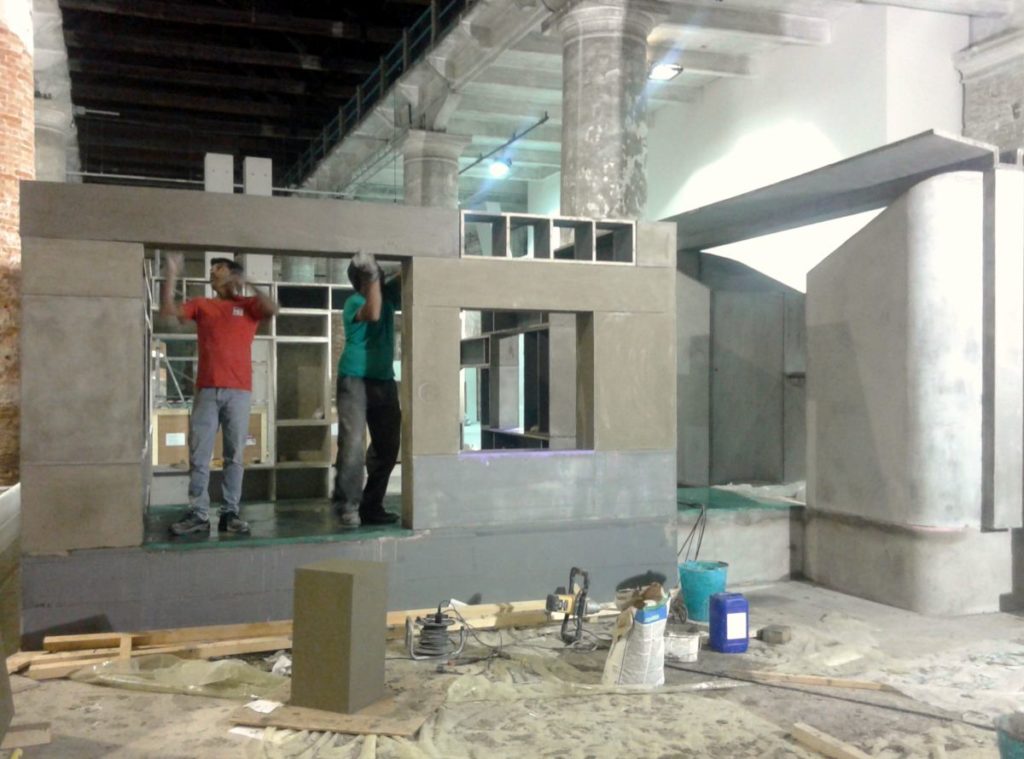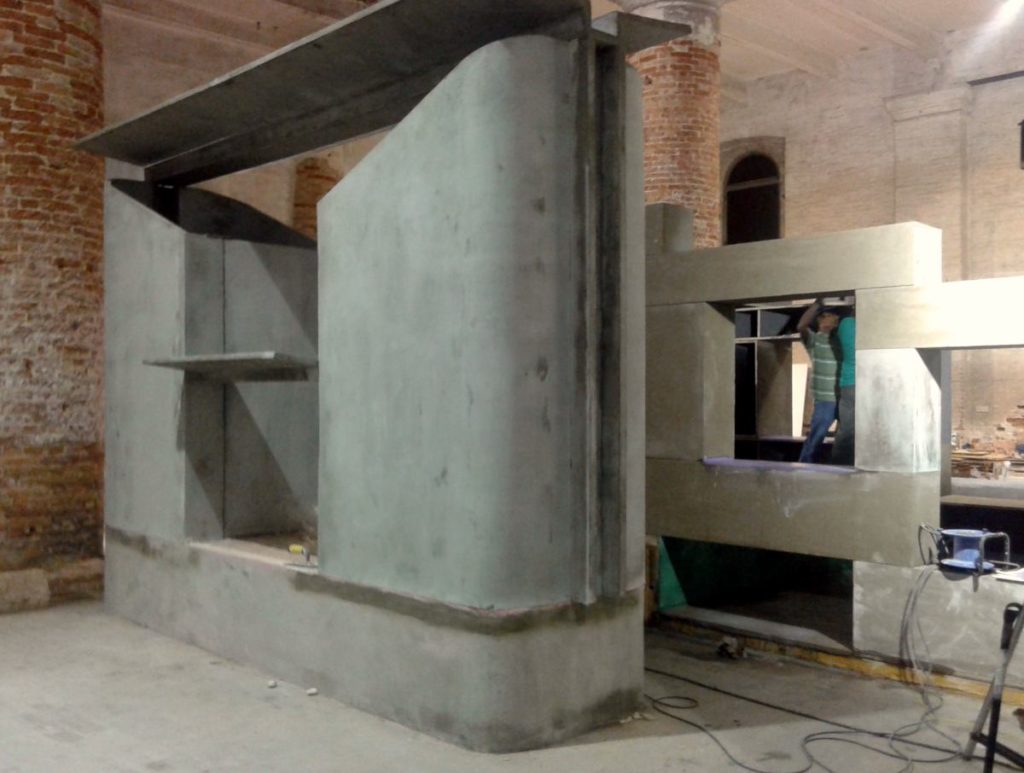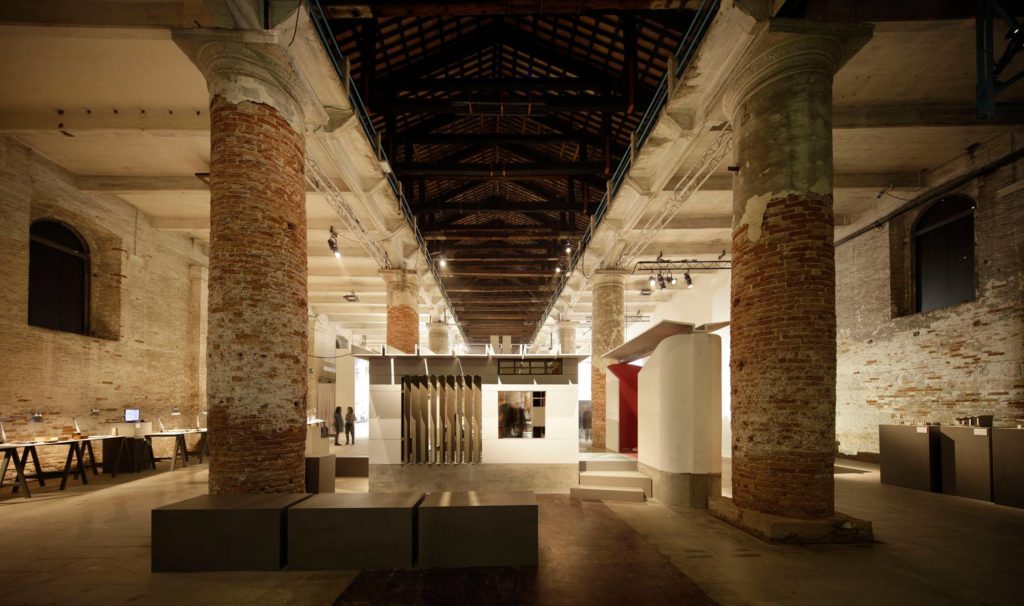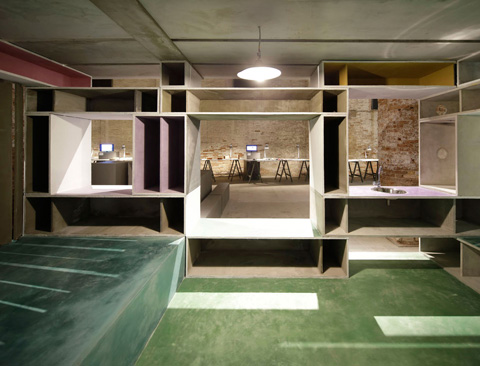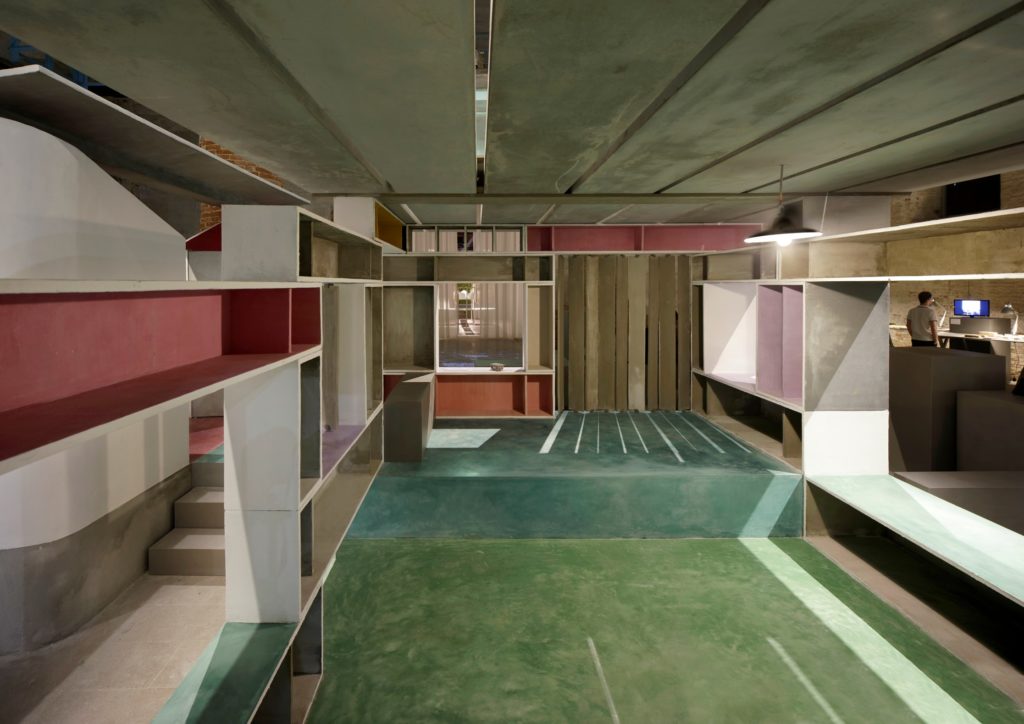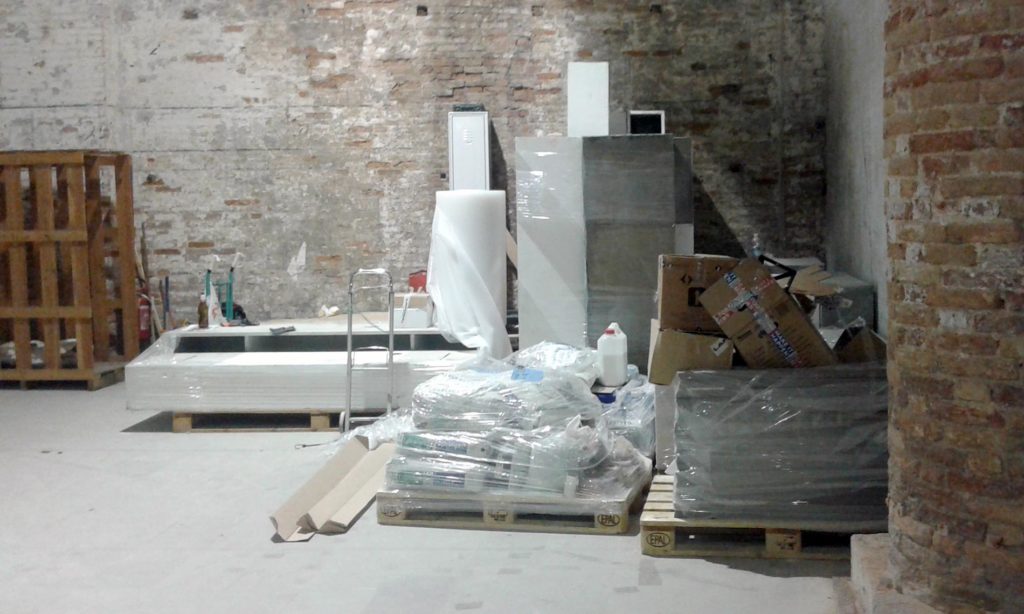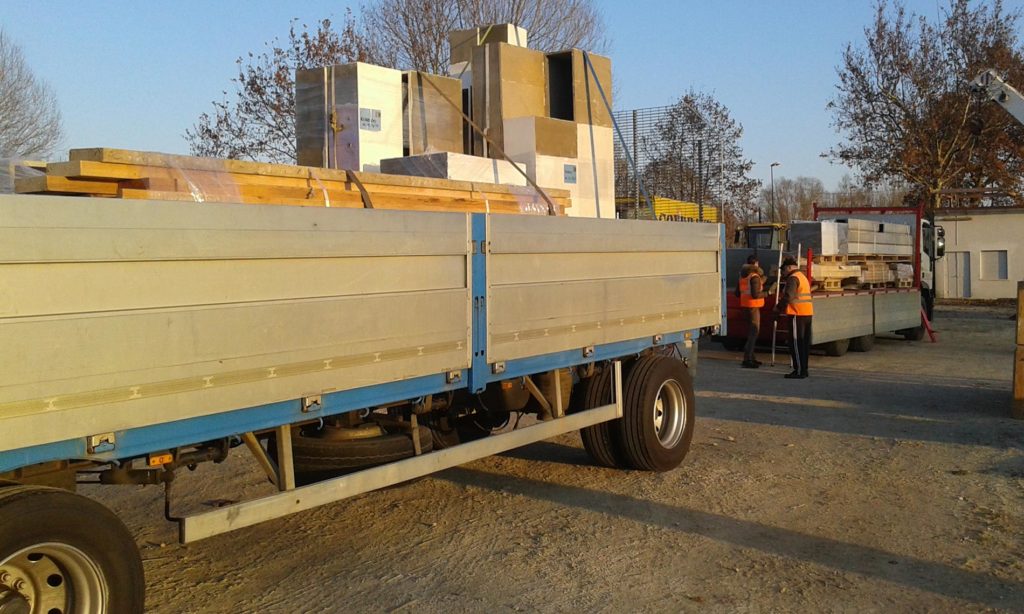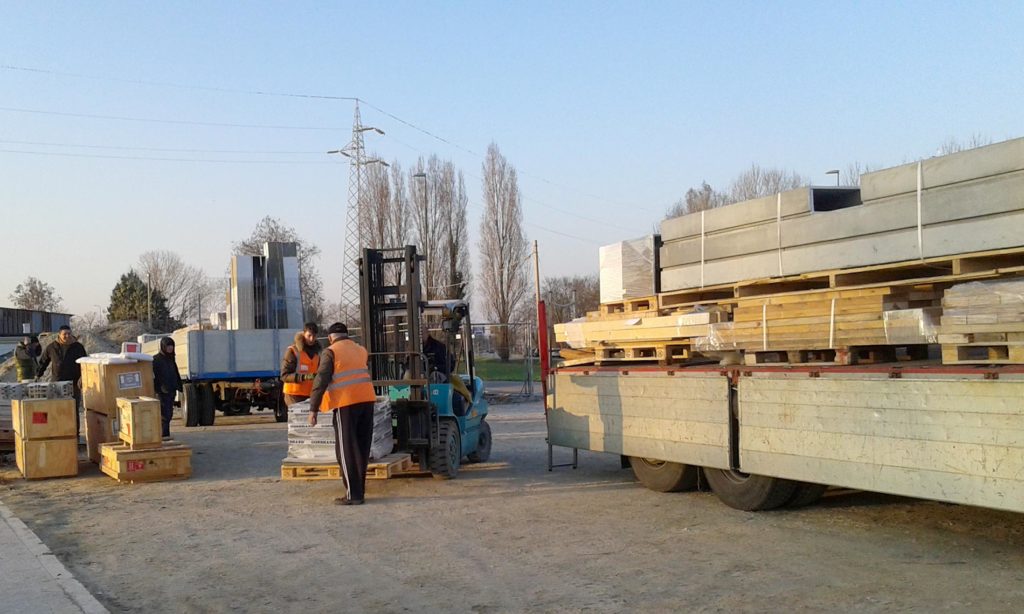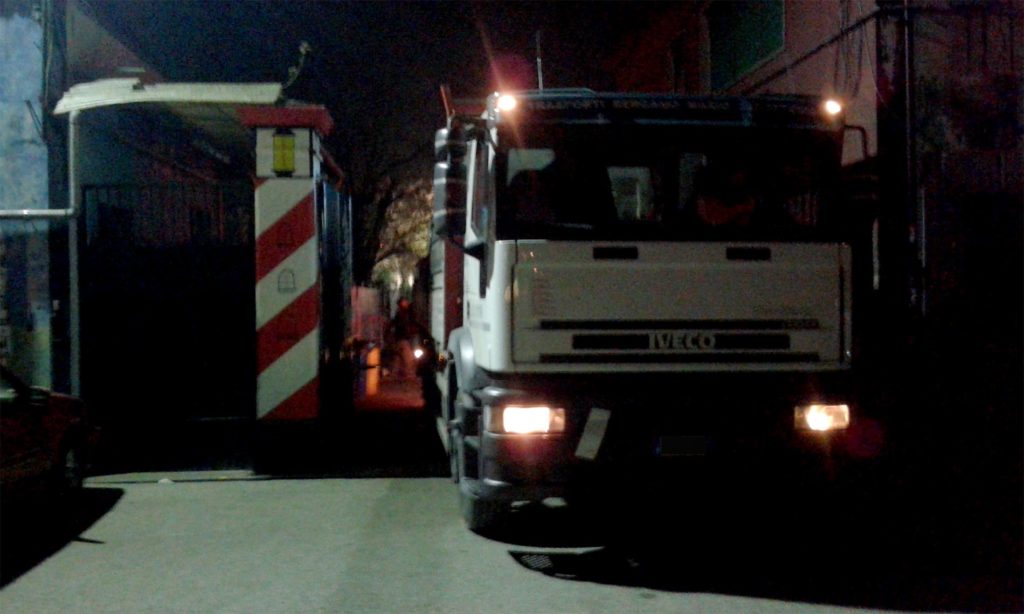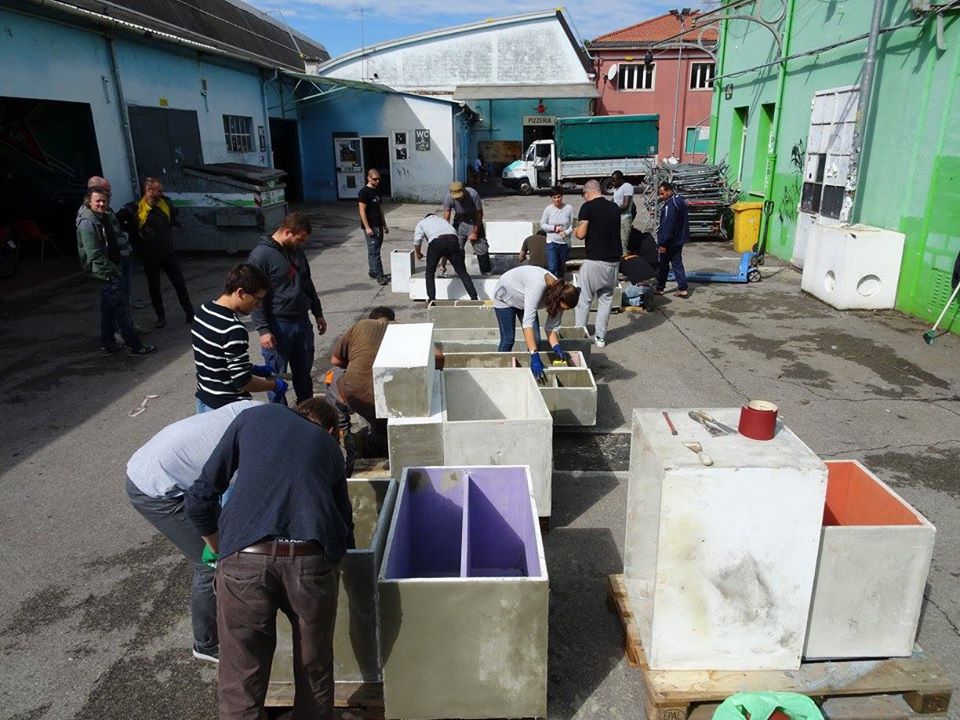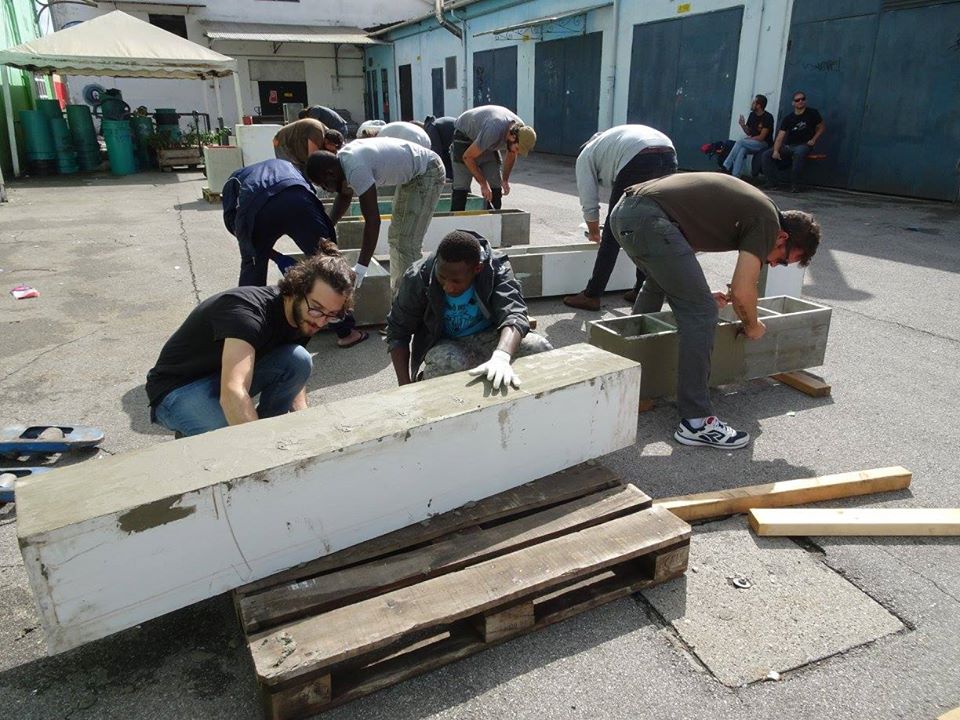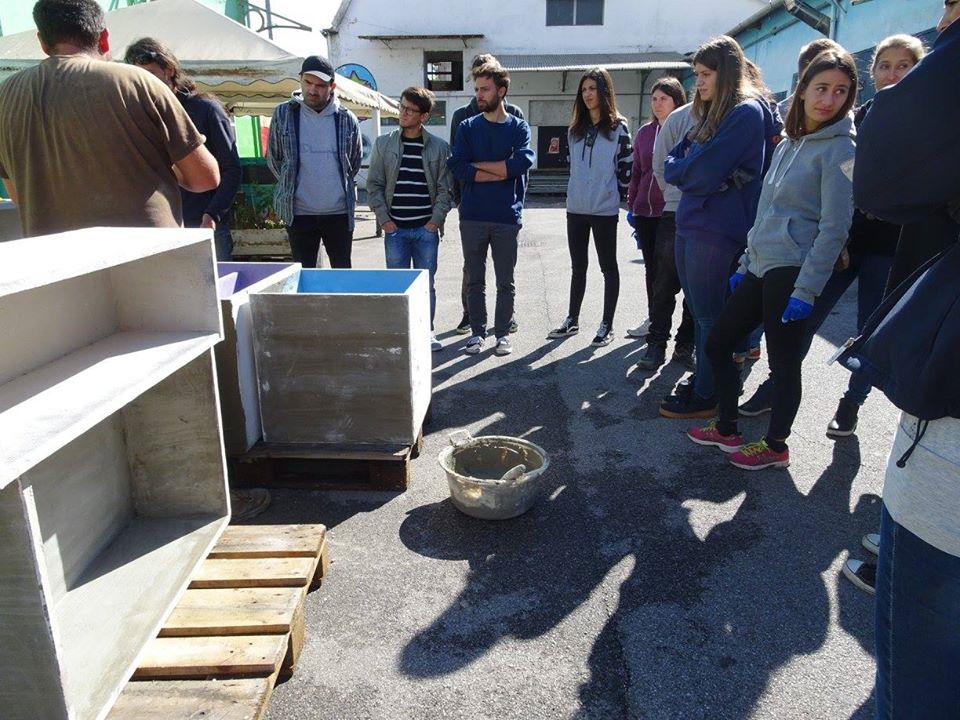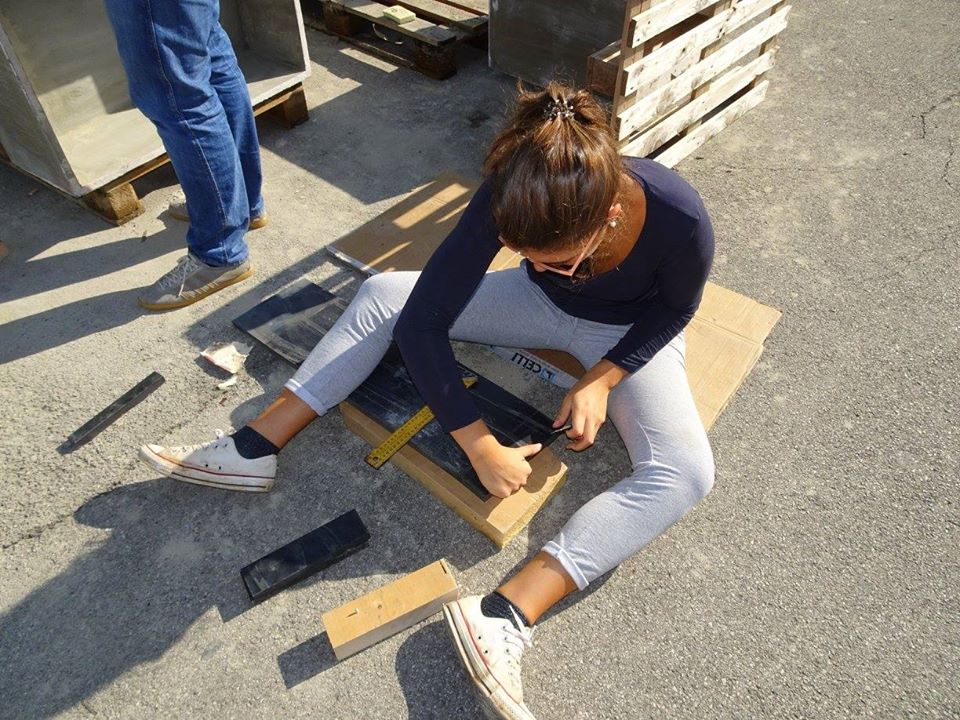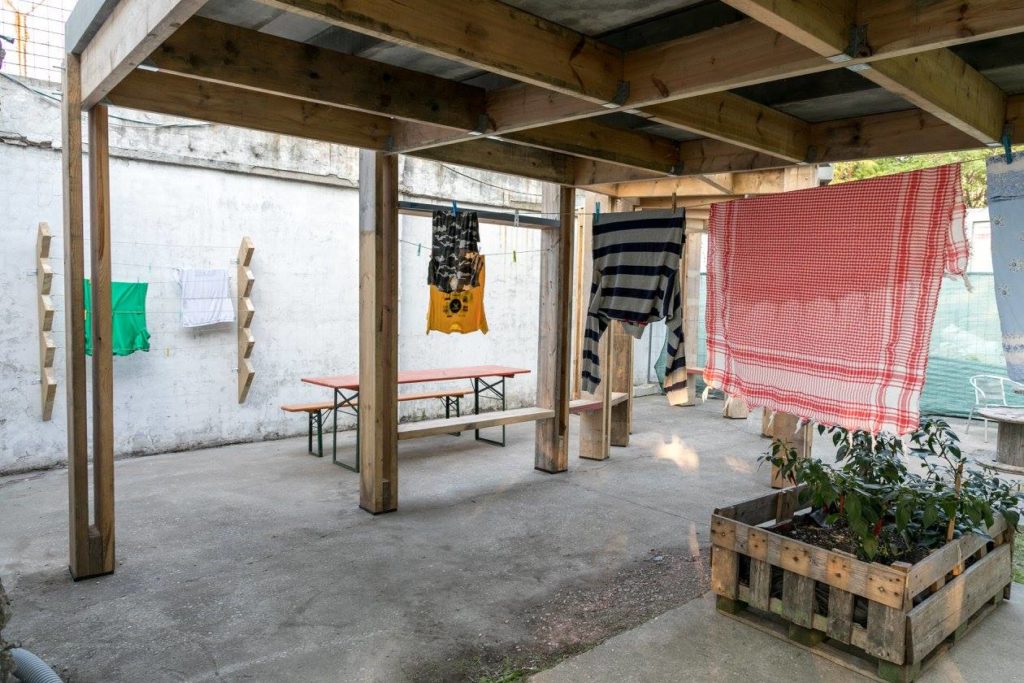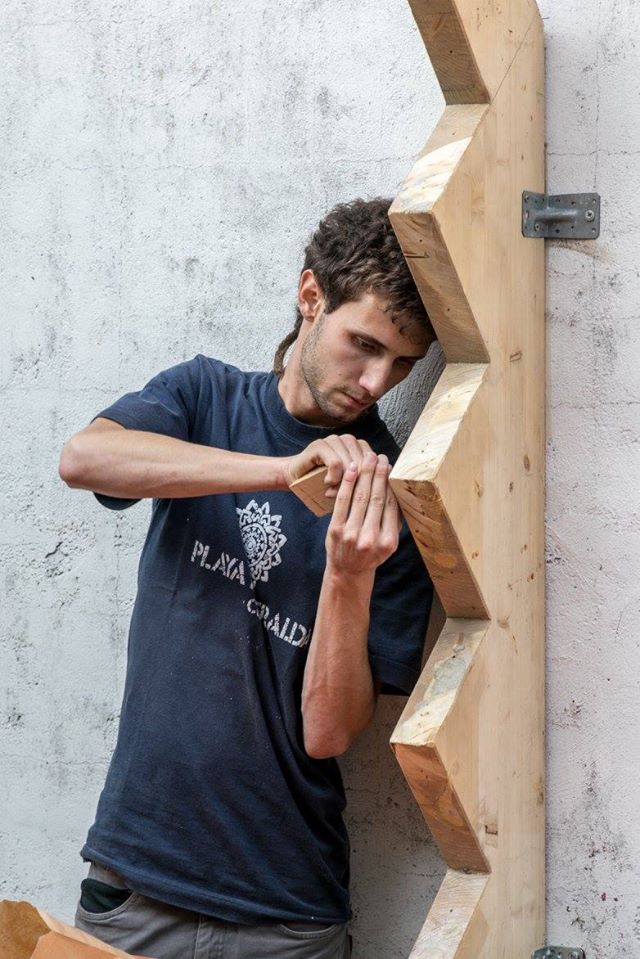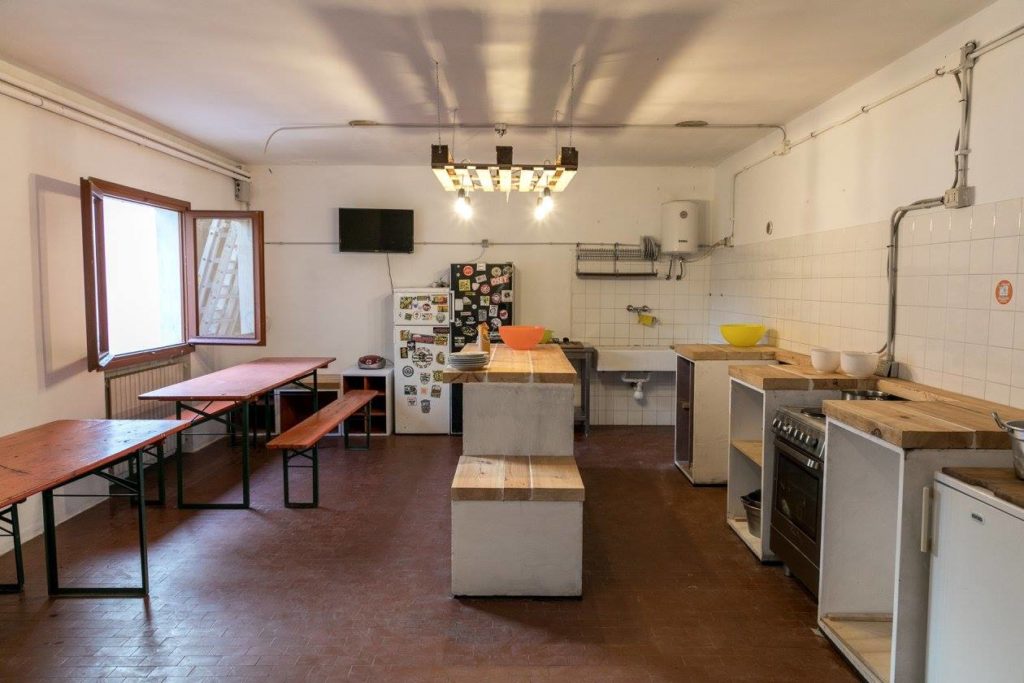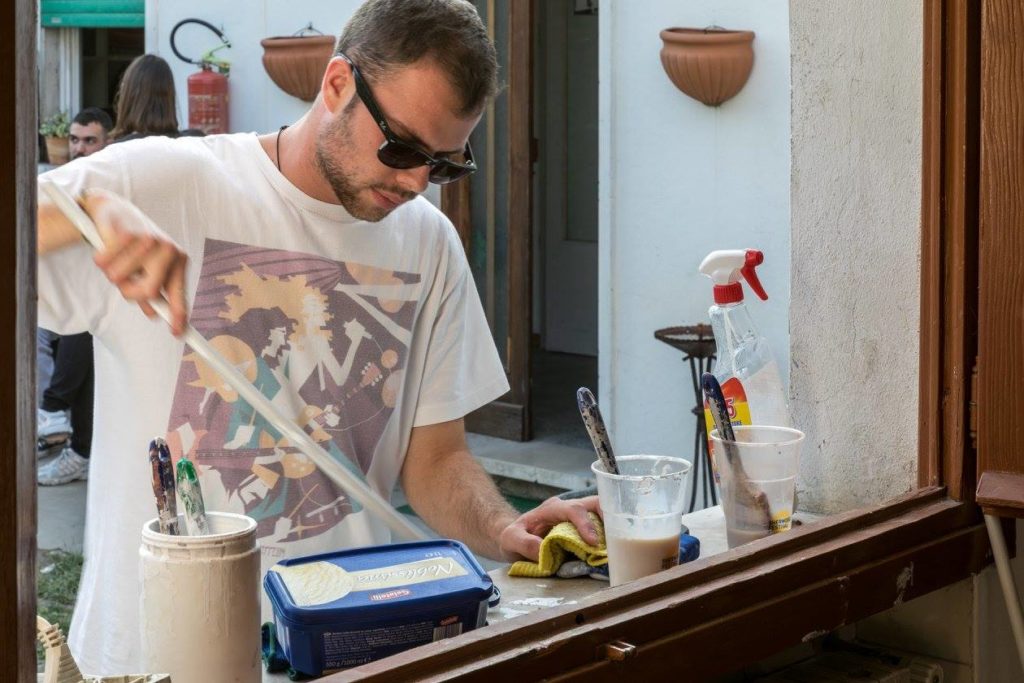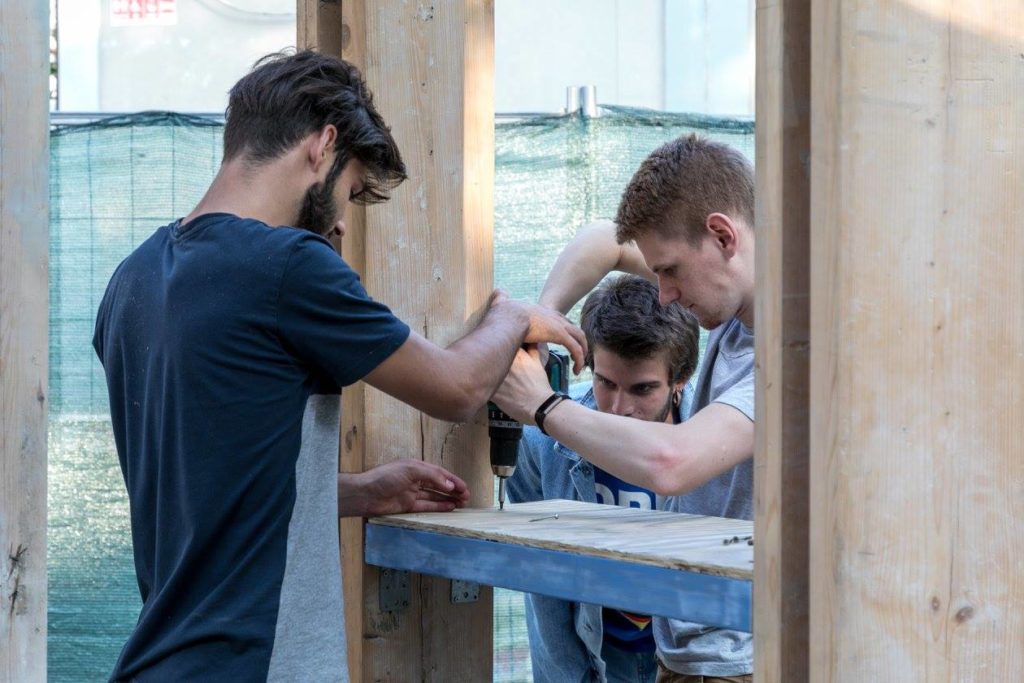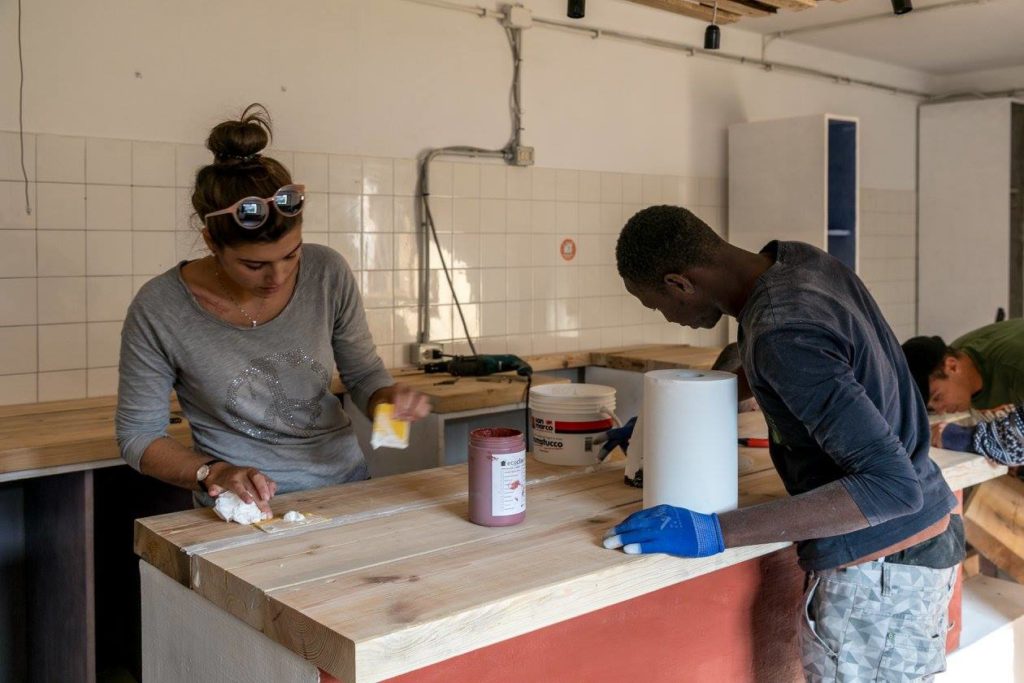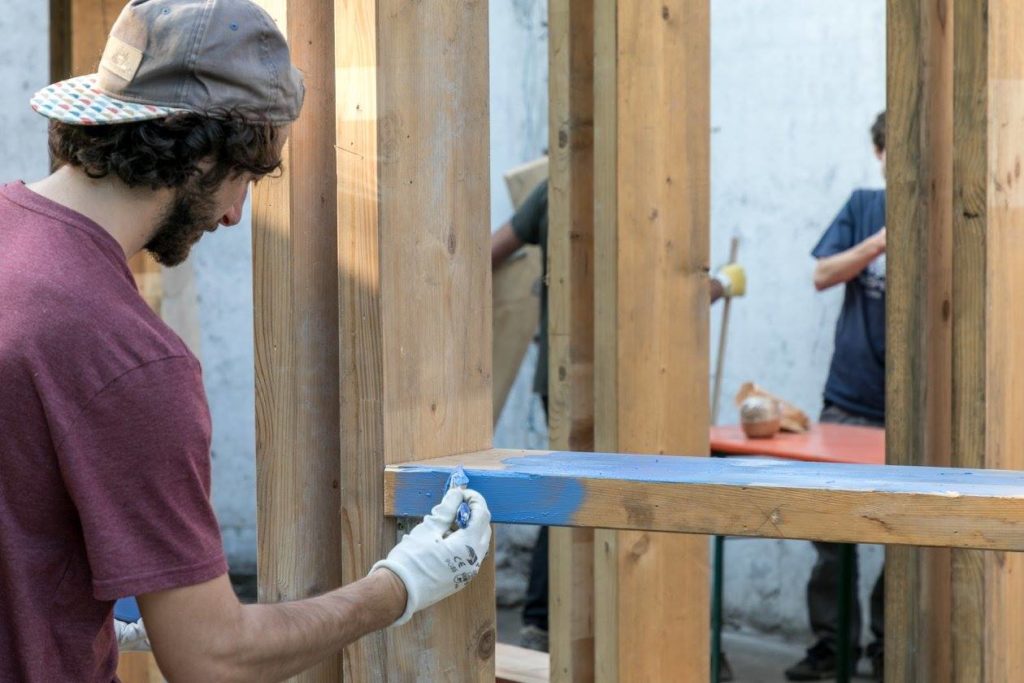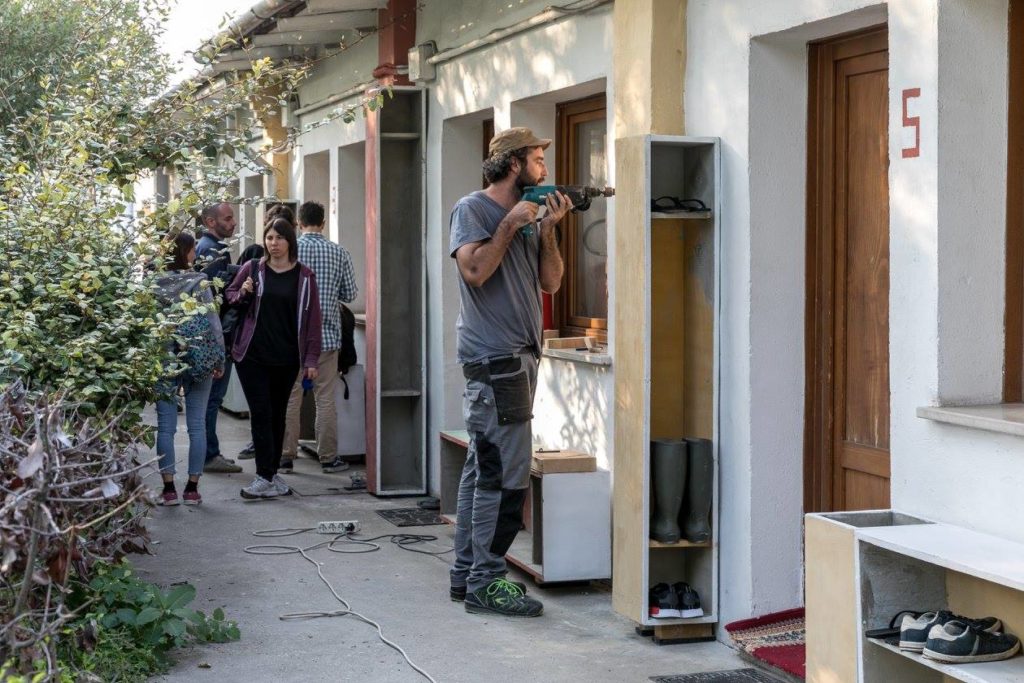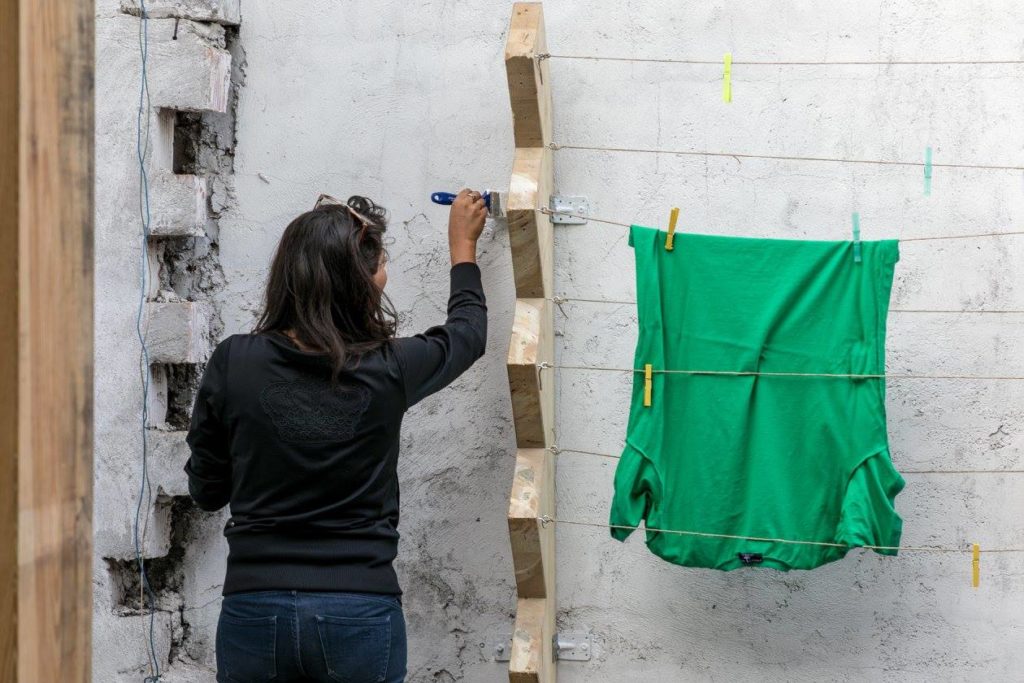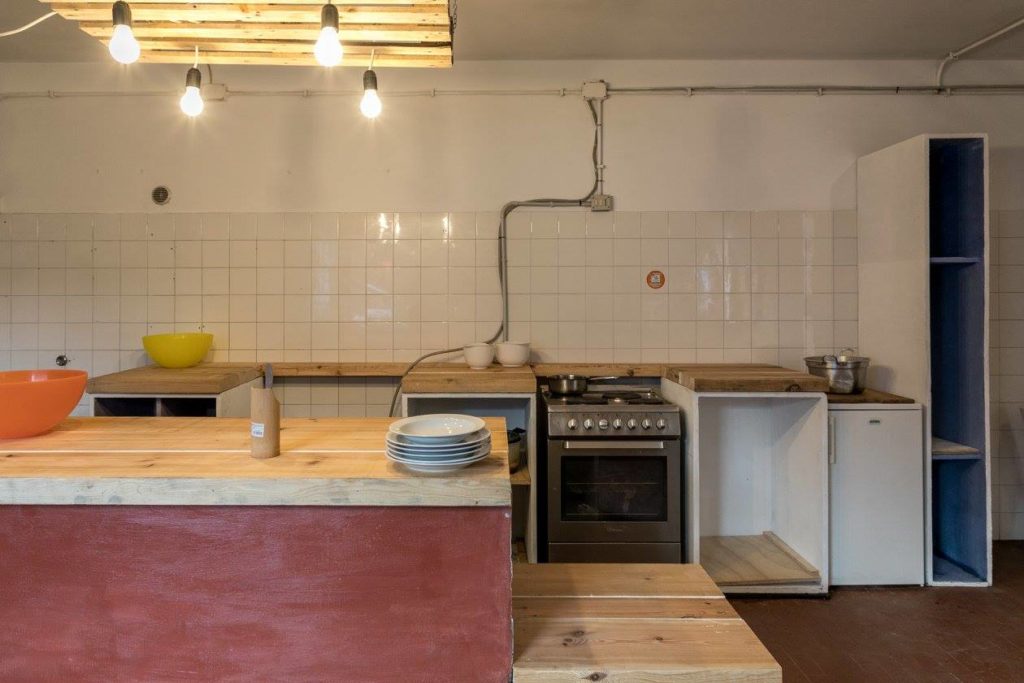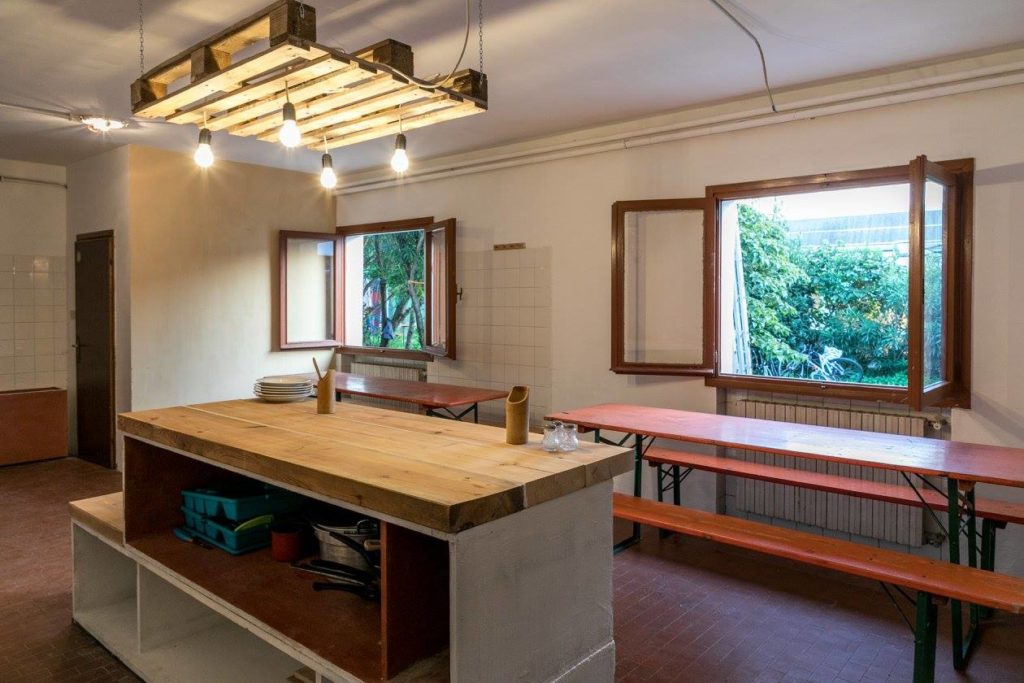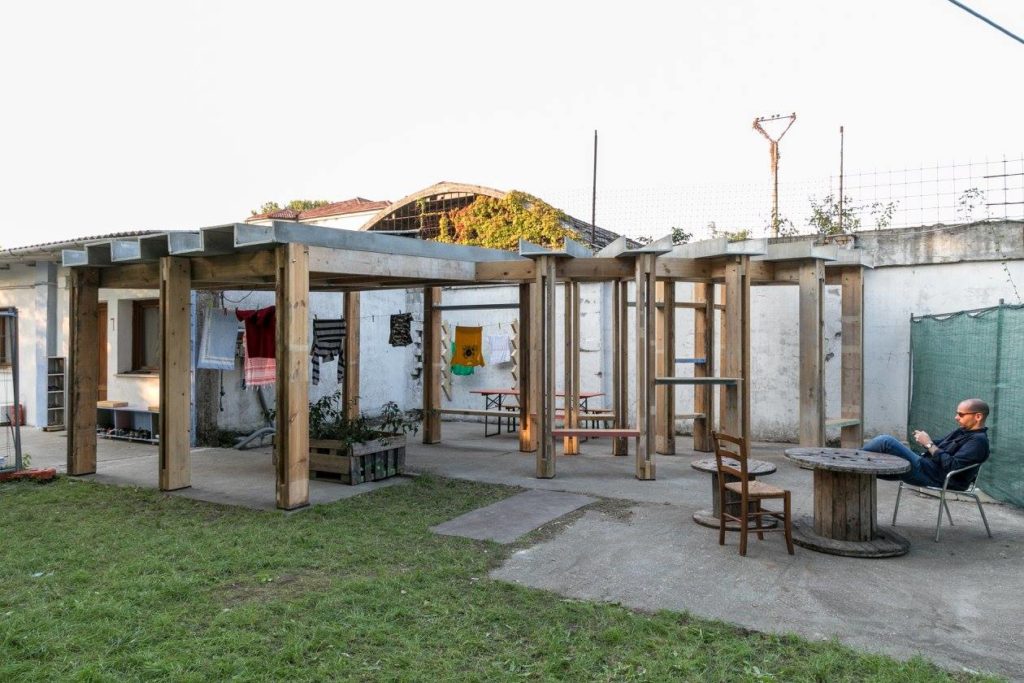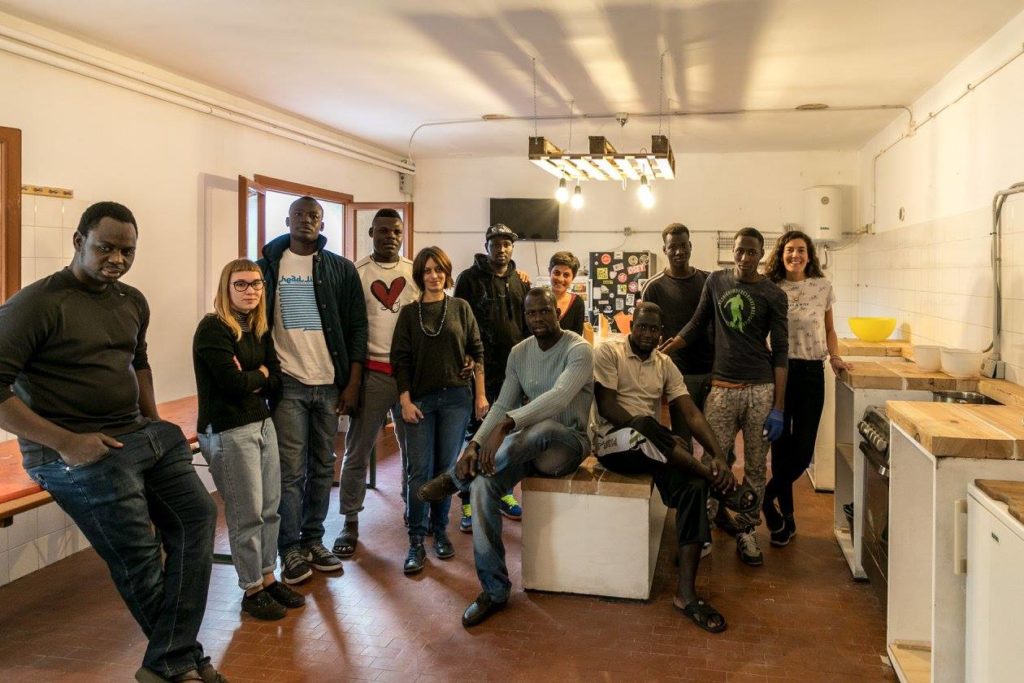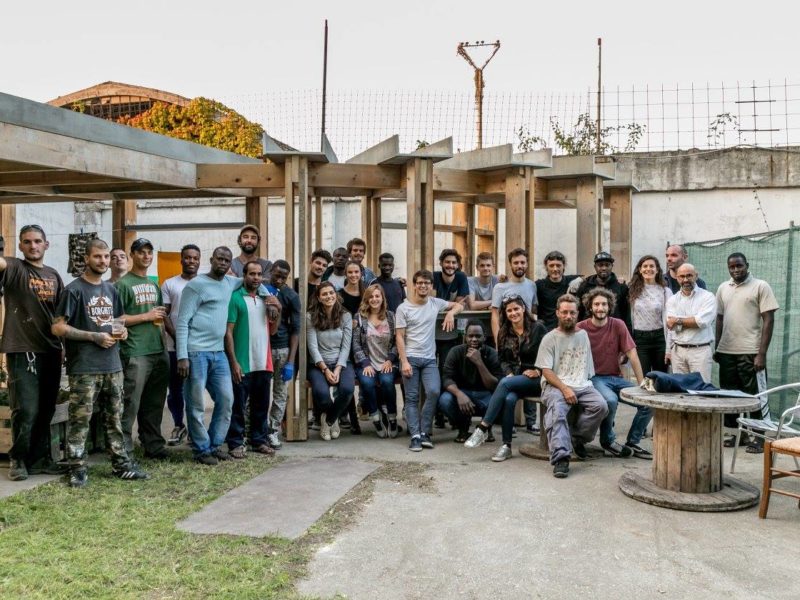
We had already met and collaborated with Anupama Kundoo when, during the teardowns of the 2015 Art Biennale, we learned from his assistant Sebastiano Giannesini that he would participate in the next edition with an important project.
“Building Knowledge-an inventory of strategies” would have brought to the Corderie of the Arsenale a prototype, on a 1: 1 scale, of an experimental housing module developed a few years earlier in India, designed with cheap and easily available materials, to solve emergency residential situations, in delicate contexts from the point of view social and environmental.
There Full Fill Homes -this was the name of the prototype- it was therefore a set of modules made with metal mesh covered with concrete, and then finished with clay plasters of various colors.
Although it was a simple construction, one could immediately imagine that it would not have been sustainable to work such an important amount of cement and build a real house – made up of very heavy modules – to have it demolished after a few months, at the end of the exhibition.
There was only one solution: to build it with reused materials, lighter and above all immediately available, that is, with the materials we had just dismantled from the German pavilion at the Giardini della Biennale.
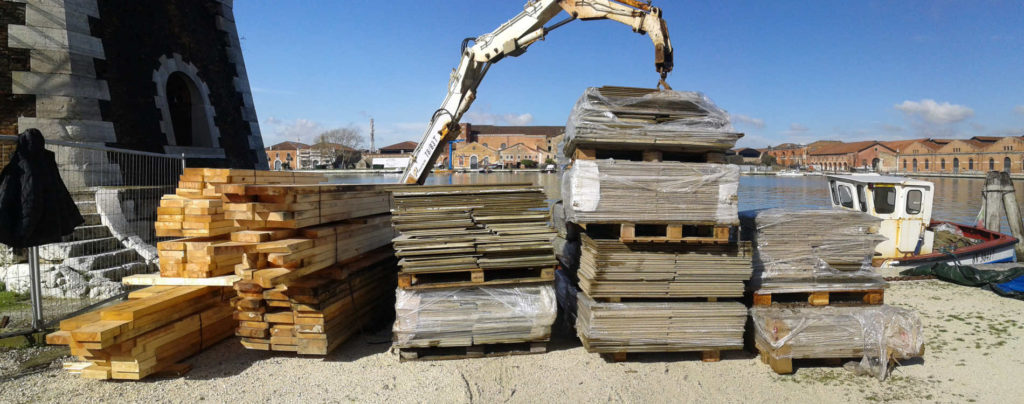
Second life / RE-BUILDING KNOWLEDGE in Marghera
During the assembly operations, together with dozens of architecture students and the staff of designers, as part of an international workshop, we began to study the reuse of the installation, identifying the ideal place in the Rivolta social center and the Caracol Social Cooperative of Marghera. where to give life to those materials and at the same time strengthen the concept of Anupama.
After a few months, at the end of the Biennale dismantling, a second international workshop , in collaboration with the IUAV , would have reorganized the materials of the installation to improve the reception spaces for a group of newly settled refugees from Mali, Ghana, Bangladesh.
“It is important for architecture students to be in touch with reality. As a teacher, I try to create opportunities for them to engage with real people, real places, real materials and real scale during the project process “ , said Anupama Kundoo.
“The workshop became an opportunity to address local issues, to contribute directly to their solutions and to exchange knowledge through interdisciplinary and intercultural relationships.
The re-installation process has turned into an opportunity to continue Building Knowledge ”

